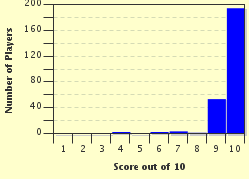Quiz Answer Key and Fun Facts
1. In Victorian times, who normally looked after the children in a rich household?
2. Rich children who lived during Victorian times were normally spoilt with toys and games. Which of the following would they have played with?
3. Blackboards were a familiar sight in Victorian classrooms. What did they use to write with which could easily be wiped clean afterwards?
4. Wealthy parents of Victorian children were able to afford a family holiday to the seaside each year. Which type of entertainment did they normally watch?
5. Children from a poor household had to work for a living. Which trade had boys as young as four climbing up a fireplace to clear sooty ash?
6. Children in the north of England and Wales were often made to work in coal mines. Which of these was NOT one of their jobs inside the coal mine?
7. Homeless children from the Victorian era were sometimes made to live in what type of building?
8. "Please sir, I want some more" said Oliver Twist in the book written by Charles Dickens. What sort of food was Oliver asking for?
9. Street urchins without a home had to steal food and clothes to live, and some were unlucky enough to be caught. The children were normally convicted and sent to where?
10. In 1884, a man called Benjamin Waugh founded the UK charity NSPCC to raise awareness relating to child welfare. What do these initials stand for?
Source: Author
Plodd
This quiz was reviewed by FunTrivia editor
NatalieW before going online.
Any errors found in FunTrivia content are routinely corrected through our feedback system.


